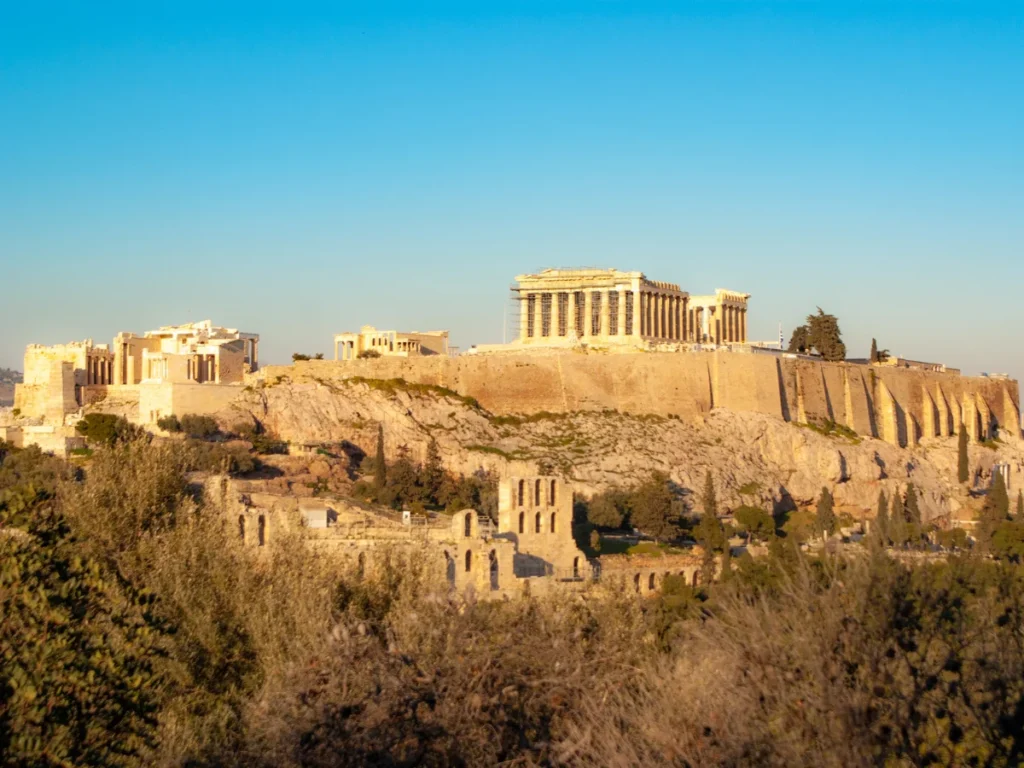Founding of democracy in ancient Greece
The founding of democracy in ancient Greece, particularly in Athens, marked a revolutionary shift in governance. In ancient Athens, the seeds of democracy sprouted under the guidance of forward-thinkers like Solon, who first limited aristocratic dominance. Cleisthenes deepened the democratic ethos with groundbreaking reforms, while Pericles further broadened citizen participation. This pioneering democratic experiment, though exclusive to male citizens, faced its share of tribulations.

Founding of democracy in ancient Greece
Initiating our journey into the birthplace of democracy, ancient Greece, particularly Athens, stands as a testament to this radical political experiment. Interestingly, the word “democracy” itself originates from the Greek words “demos” (people) and “kratos” (power). Thus, in essence, democracy meant power to the people.
Solon
In the beginning, the foundations of Athenian democracy took shape around the 6th century BCE. Prominently, the reformer Solon played a pivotal role in paving the way. He introduced laws that curtailed the power of the aristocracy and provided a voice, albeit limited, to the common Athenians in the city’s governance.
Cleisthenes
However, it wasn’t until the leadership of Cleisthenes in 508-507 BCE that democracy truly began to flourish in Athens. Often heralded as the “Father of Athenian Democracy”, Cleisthenes restructured the entire political landscape. Through his reforms, he reduced the power of traditional elites, established new political units known as “demes”, and introduced the concept of ostracism, which allowed citizens to vote out potential tyrants or those deemed a threat to the state.
Pericles
Following Cleisthenes’ innovations, Pericles, ruling from 461 BC to 429 BCE, further expanded the reach and depth of democracy. Under his guidance, the majority of public offices started to compensate their officeholders, thus enabling even the poorer Athenians to serve and participate. Additionally, he promoted large-scale public works which furthered civic pride and engagement. The Pnyx, a hill in central Athens, became the meeting place of the city’s popular assembly, illustrating the literal heights to which democracy had climbed.
However, it’s crucial to understand that this democracy differed significantly from modern interpretations. Only male citizens could participate, excluding a vast portion of the population, including women, slaves, and non-citizens. Furthermore, though it encompassed large swathes of the populace, the decision-making often fell to a subset of citizens actively engaged in politics.
Over time, external pressures, notably the Peloponnesian War and internal strife, began to strain this democratic system. The latter half of the 5th century BCE saw interruptions in the democratic process, with oligarchic coups briefly overthrowing the democratic system, only for it to bounce back.
In conclusion, the flame of democracy, kindled in ancient Greece, was nurtured by visionaries like Solon, Cleisthenes, and Pericles. While it underwent trials and transformations, its essence paved the way for democratic thoughts and institutions across the globe. The ripples created by this ancient political system continue to influence modern democratic ideals and structures today.
